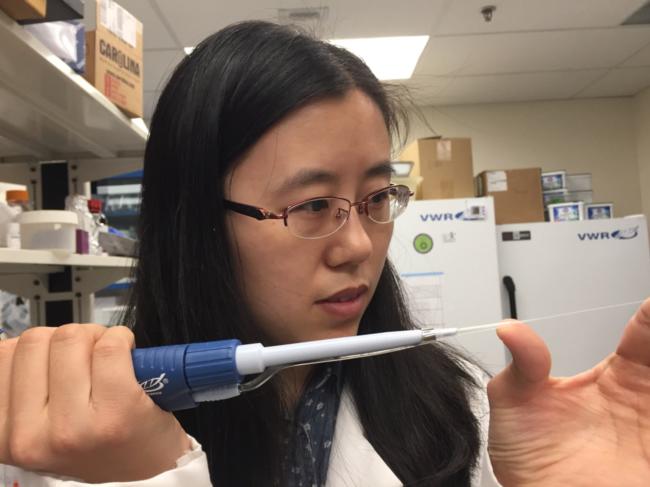(Text by ZHANG Linlin, linlinzhang@qdio.ac.cn)

Linlin was loading CRISPR molecules into microinjection needle. Credit: Institute of Oceanology, Chinese Academy of Sciences
The marine ecosystem is a unique ecosystem that supports various animal lives. All these species set excellent examples with unique adaptations that allow them to thrive in the marine environment with extreme pressure, depths, darkness, and so on. My team and I study the evolution of animal morphological diversity. We are especially interested in how novel traits arise in nature and how they diversify under unique marine habitats (deep-sea, intertidal zone, and Indo-Pacific).
Novelty is the raw material of adaptation and is the most fundamental determinant of morphological diversity. Little is known, however, about the genetic forces that shape the range of diversity in the nature. Specially, we take Clustered Regularly Interspaced Short Palindromic Repeats (CRISPR) genome editing approach to study the evolution of marine biodiversity and their adaptations in the context of lophotrochozoans (mollucs, segmented worms, and their allies).
In the last decade, CRISPR has emerged as an essential tool for genome editing. We have been working hard to expand the CRISPR methodology toolkit in the marine non-model organisms to make them more tractable experimental systems. To understand marine biodiversity and their adaptions, we conduct oceanographic expeditions to explore marine lives. We perform comparative analyses of developmental processes across species to infer how morphological diversity has evolved. The study is usually followed by understanding how specific DNA elements and variations ultimately generated adaptative phenotypes, from the diverse coastline morphological pattens to the divergent deep-sea features. Much of the functional work is done by CRISPR genome editing in the lab. We also work on utilizing marine genetic resources.
Ocean has astonishing biodiversity and extreme adaptations. My passion is in nature. I love spending my time here, in the ocean.
(Editor: ZHANG Yiyi)

